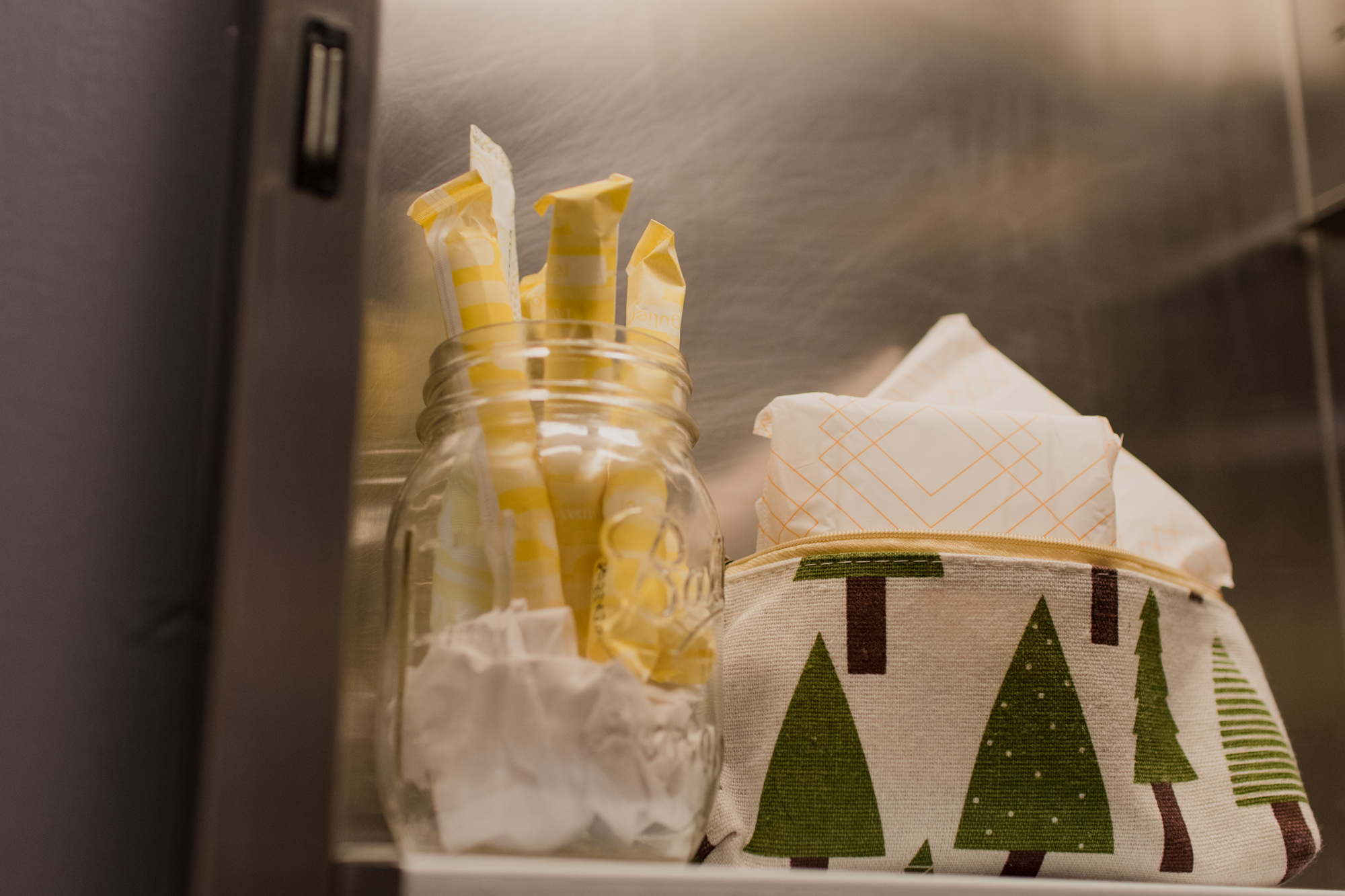Views expressed in opinion columns are the author’s own.
Last week, I got my period. Normally, this wouldn’t be a big deal — it happens every month. But this time, I felt my stomach sink with a familiar dread: I didn’t have any tampons on me.
My options were: buy a tampon in the bathroom, or tough it out until I could go home. I didn’t have any money on me, and I had a full slate of classes ahead. While my situation was frustrating, it’s all too familiar on the University of Maryland’s campus.
No one should have to pay a price for their bodies simply existing. A period is a personal experience, and should be free from commercialization or monetary exploitation. This university must stop charging people who get periods for tampons and pads in university bathrooms, and instead provide the sanitary products they need for free.
The lifelong cost of tampons and pads adds up. Women, on average, have their periods for about 40 years of their lives. Over the course of her lifetime, a woman could spend more than $2,000 on menstrual products, according to HuffPost. It’s ridiculous that women have to pay to take care of a process that naturally happens.
Paying for tampons and pads also puts low-income students at an unnecessary risk of having to choose between sanitary products and other needs, such as food or books. Choosing between lunch and a box of tampons should not be something students ever have to worry about.
By offering these products for free, this university can become a leader in eliminating the harmful effects of the “pink tax,” increased costs associated with some products marketed to women, including sanitary items.
The required payment for these necessary products is not only detrimental for people who get periods — it’s also impractical. Many of the tampon and pad vending machines on the campus require quarters for payment. What student carries around exact change to get a tampon? It’s an outdated method supported by outdated stigmas toward periods.
Additionally, providing free period products in bathrooms on this campus eliminates the embarrassment that sometimes comes with asking for a tampon or pad. There are about 14,654 undergraduate women at this university, equating to about 48 percent of the undergraduate population. There is no need to force people who get periods to pay for sanitary products for a natural process which is out of their control.
More importantly, cisgender women aren’t the only ones who menstruate. Transgender men, as well as people who are genderqueer or nonbinary, can get periods. Free period products lessen any embarrassment or privacy concerns individuals may have regarding their cycle.
A group of students is pushing for funding to make free menstrual products a reality. While this university currently has four locations that provide free tampons and pads, this group is trying to get 15 locations on the campus to carry free menstrual products. They are requesting $18,000 from the Student Facilities Fund, which would “cover the installation of 15 tampon and pad dispensers and $15,000-worth of pads and tampons, a year’s supply.”
If this university provided access to free tampons and pads, it would be an extremely important step forward in establishing gender equality and equity — but it wouldn’t be the first to do so. Other universities, such as the University of Illinois, already provide free period products to their student bodies.
The precedent has been set, and it’s time for this university to follow suit. This university must acknowledge that menstrual products are not a luxury, but a necessity, and provide them to students for free.
Maya Rosenberg is a sophomore journalism and public policy major. She can be reached at maya.b.rosenberg@gmail.com.



